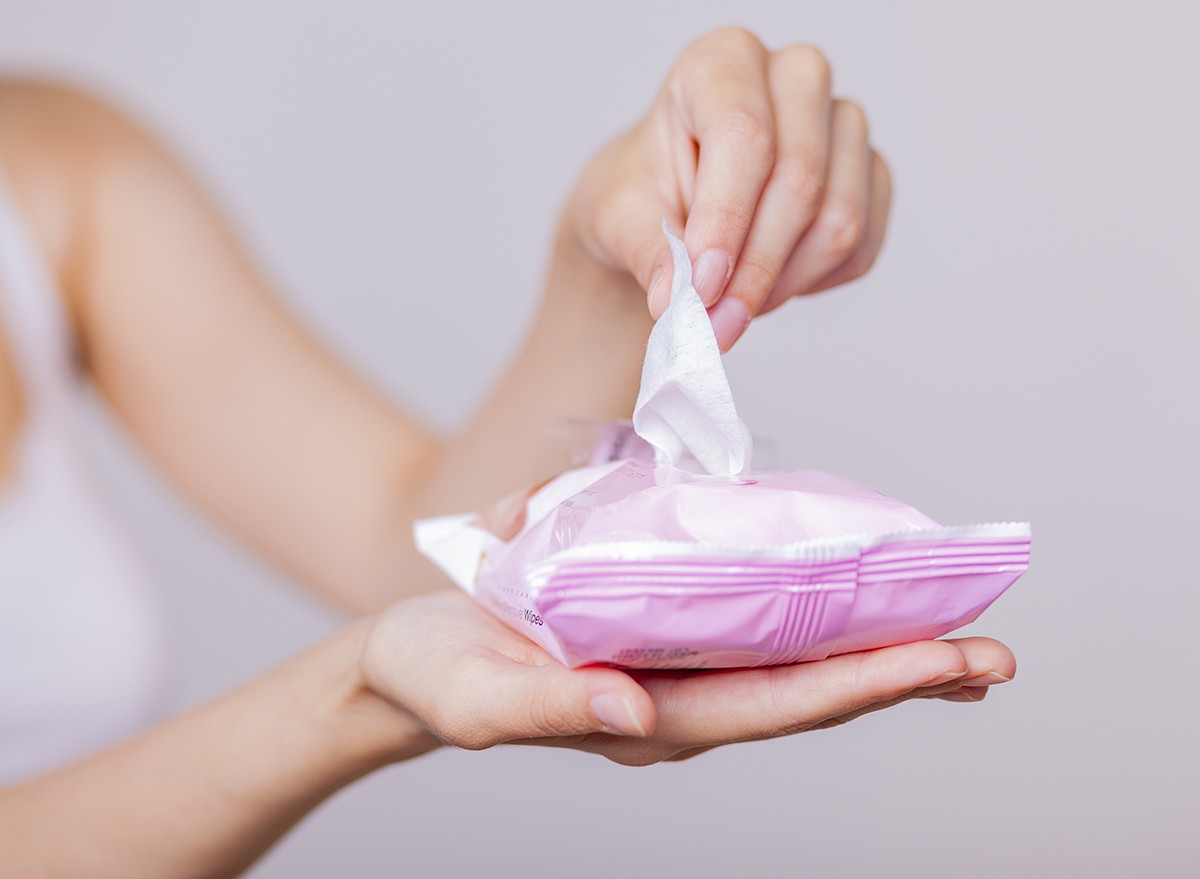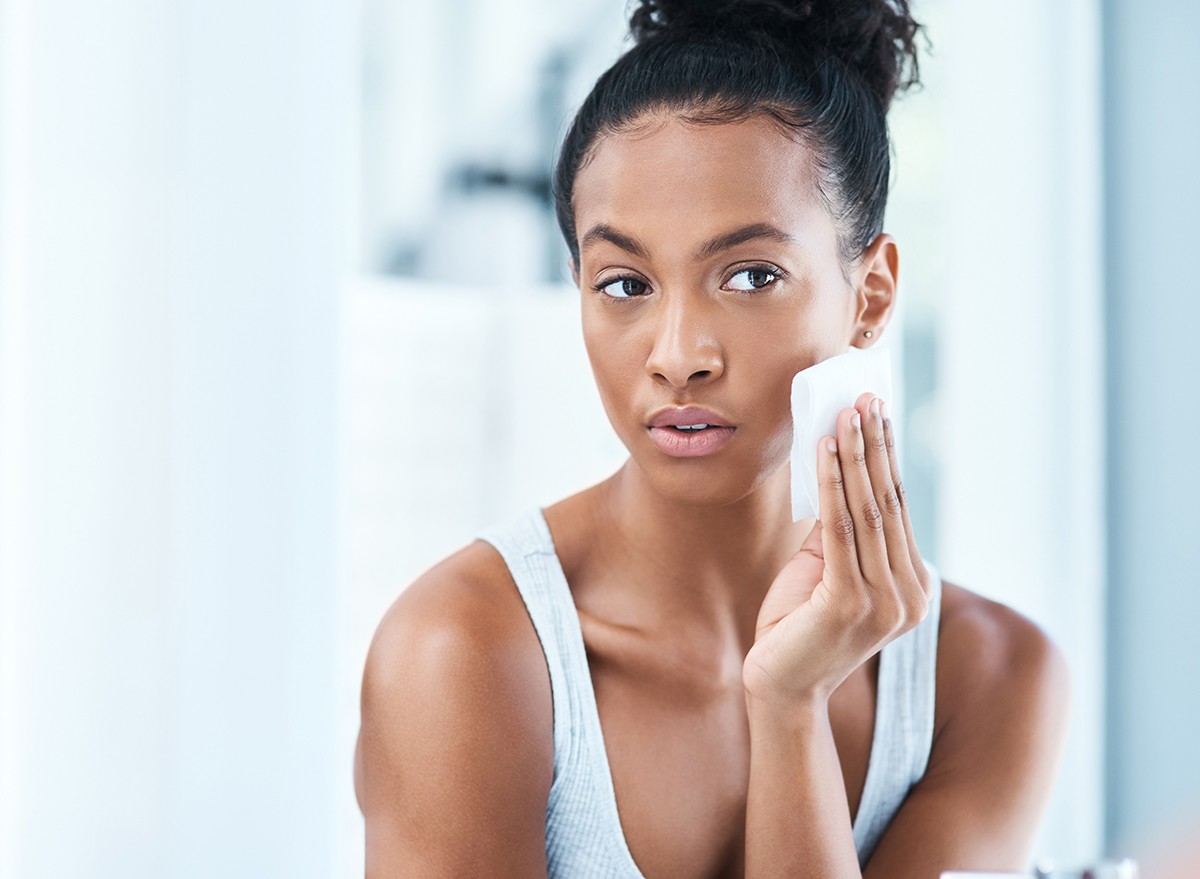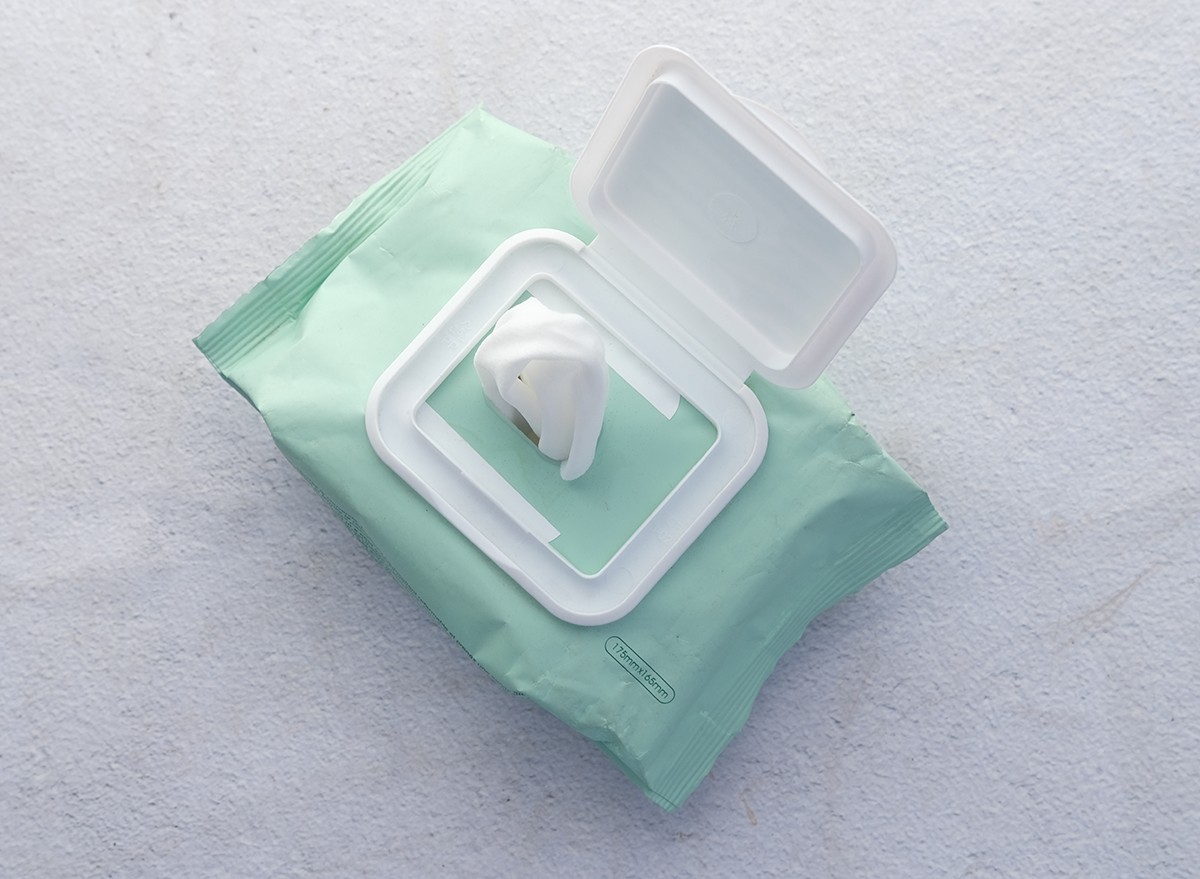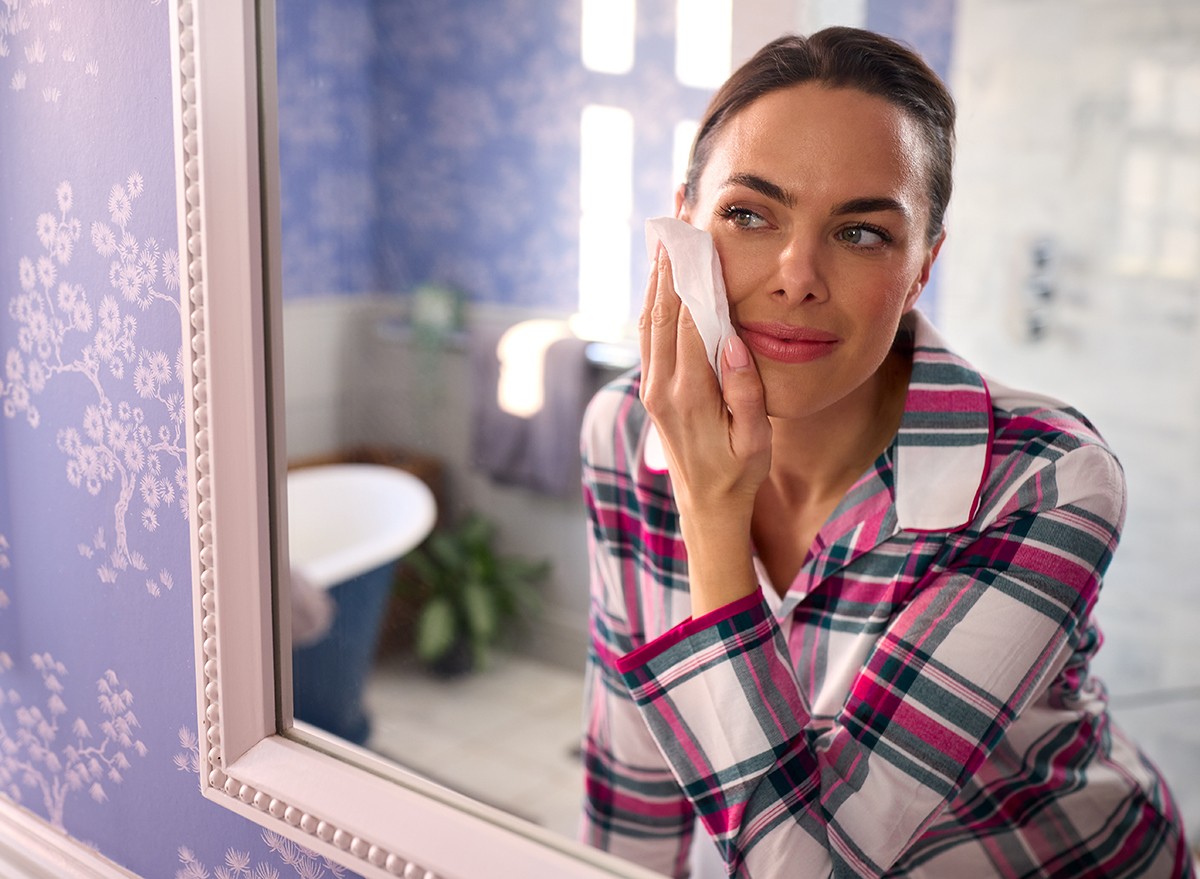Dermatologists Warn Against This Common Makeup Removal Mistake

Proper makeup removal is crucial for healthy, beautiful skin—a good cleanser is key in your skincare routine, and using makeup wipes can be tempting to save time and effort. The problem is when using makeup wipes becomes the norm, instead of an in-case-of-emergency backup. Experts warn using wipes can exacerbate skin issues and wreak havoc on your complexion. “In a pinch, it’s probably fine for most people to use a makeup wipe,” Dr. Shari Lipner, associate professor of clinical dermatology at the Weill Cornell Medical Center, tells TODAY. “But it definitely shouldn’t be in your daily routine.” Here’s why.
RELATED: 5 Makeup Products That Are “Undupable”.
Makeup Wipes Cause Breakouts

Makeup wipes can be handy, but are not suitable for removing makeup—especially heavy makeup. “If you have very oily or acne-prone skin, using a wipe could contribute to clogged pores and acne breakouts,” board-certified dermatologist Hadley King, MD, tells Real Simple. “And for those with sensitive or rosacea-prone skin, some wipes can leave an irritating residue of chemicals.”w
Residue and Irritation

Makeup wipes leave a residue on the skin which can cause irritation. “You’re wiping things on the skin to get the oil, makeup and dirt off,” Dr. Nada Elbuluk, associate professor of clinical dermatology at USC Keck School of Medicine, tells TODAY. “But you’re leaving some of the residue from the wipes on the skin,” she says. “And that’s something that needs to be cleansed off as well.”
Scrubbing Is Rough on Skin

The very nature of using wipes means you have to scrub your skin, which is a no-no. “If you have rosacea or eczema or you’ve got very sensitive skin, just using the wipe to rub off your makeup can, in and of itself, cause redness and irritation,” Dr. Shari Marchbein, clinical assistant professor of dermatology at the NYU Grossman School of Medicine, tells TODAY. “Certainly, if that’s happening, you should not be using (the wipe). You want to use just a gentle cleanser.”
RELATED: 5 Makeup Mistakes You’re Making Over 50.
Harsh Ingredients

Some wipes have harsh ingredients that can irritate skin. “Many of the wipes on the market contain chemicals that can be irritating and harmful to the skin such as phthalates, parabens, fragrances etc.,” dermatologist Dr. Stefani Kappel, MD, tells Byrdie. “In addition, many of these wipes can strip your skin of natural moisturizing factors which can disrupt the barrier and over-strip the skin.”
When Are Wipes Appropriate?

There are times when a wipe can make you feel much cleaner—but if you can rinse afterwards, do. “They are great for a quick cleanse when one is too tired to cleanse with water as well as in situations where rinse-off cleansing is difficult, such as when camping, exercising, traveling or in other transient environments,” board-certified dermatologist Dr. Craig Kraffert tells HuffPost.